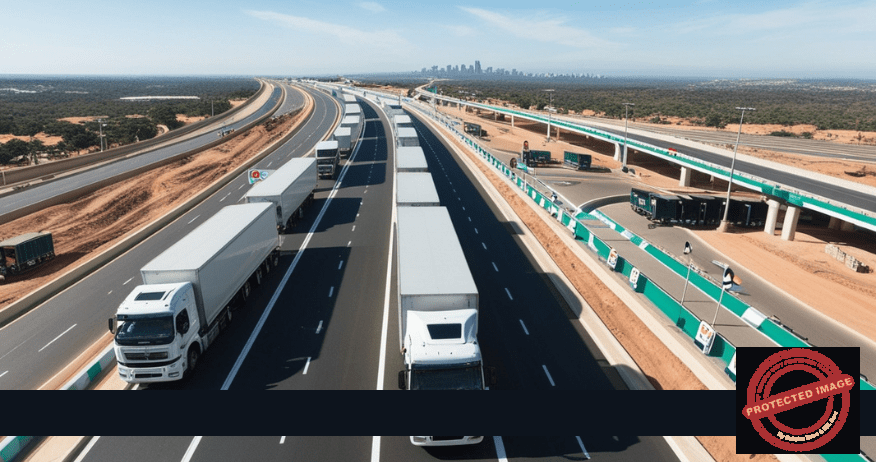The Usahihi Expressway is poised to revolutionise Kenya’s infrastructure and economic growth. The 440-kilometer dual carriageway, projected to cost Ksh352 billion, aims to reduce travel time between Nairobi and Mombasa.
On completion, the road will boost trade efficiency and generate tax revenue through a public-private partnership (PPP). However, the mandatory use of the expressway for heavy commercial vehicles has sparked discussions about its impact on businesses and the broader economy.
Economic Impact of the Usahihi Expressway
- Enhancing Trade and Commerce
The Usahihi Expressway will significantly improve logistics efficiency by reducing travel time from the current 10 hours to approximately 4.5 hours. This will reduce many person-hours and other associated costs.
This reduction in travel time will directly benefit businesses in the following ways:
- Lower fuel consumption for transporters.
- Increase the turnaround time for goods delivery between Nairobi and Mombasa.
- Reduce vehicle maintenance costs due to better road conditions.
With an estimated 1,800 trucks using the route daily, the road project’s benefits will improve business productivity and raise government revenue through taxation.
- Tax Revenue Growth
The expressway will generate revenue for the government in many ways. For example, there will be multiple tax avenues, including:
- Value Added Tax (VAT): Increased trade activity will result in higher VAT collections from goods transported along the corridor.
- Corporate Tax: Businesses benefiting from improved logistics will experience growth, leading to higher corporate tax contributions.
- Fuel Levies: Faster transit means optimised fuel consumption, but the increased volume of transport activity will still sustain fuel levy collections.
The Toll System and Its Tax Implications
The Usahihi Expressway will operate on a toll-based model, meaning transporters must pay for road usage. This system raises several tax-related considerations:
- Input VAT Deductions: Transport companies may claim VAT input on toll charges, reducing their overall tax liability.
- Corporate Tax Deductibility: Toll fees can be categorised as operational expenses, lowering taxable income for businesses.
- Potential Tax Incentives: The government may introduce tax incentives for businesses relying heavily on road transport, easing the transition to toll-based highway use.
Job Creation and Economic Growth
The construction and operation of the Usahihi Expressway will create thousands of indirect and direct jobs in the country. Key employment areas include:
- Construction Sector: Engineers, laborers, and suppliers will benefit from job opportunities during the four-year construction period.
- Toll Management: There will be long-term employment in toll collection, security, and road maintenance.
- Logistics and Trade Expansion: Faster road connectivity will support warehousing, retail, and manufacturing growth.
The increase in employment will lead to higher Pay-As-You-Earn (PAYE) tax collections. This will contribute to government revenue collection and national development.
Addressing Concerns: The Cost of Transportation
While the expressway promises efficiency, transporters are concerned about the potential increase in operational costs due to the toll fees. Higher transport costs could increase prices for consumers. However, strategic tax policies can mitigate this impact. For example:
- Tax Rebates for Transporters: The government could introduce tax relief measures to cushion logistics companies.
- Public-Private Partnerships for Infrastructure Development: Revenue from toll collections could be reinvested in expanding Kenya’s road network, reducing long-term logistics costs.
Conclusion
The Usahihi Expressway represents a significant step forward for Kenya’s infrastructure, trade, and economic development. Despite concerns about toll fees, the long-term benefits—such as increased tax revenue, business growth, and job creation—far outweigh the challenges. Strategic tax policies can ensure that the expressway supports national growth while maintaining affordability for businesses and consumers.
As Kenya embraces modern infrastructure development, leveraging taxation and economic planning will be key to maximizing the benefits of the Usahihi Expressway.
Business Opportunities
Discover the business opportunities in the Usahihi Expressway Projects! Learn how this major infrastructure project can impact transport, trade, and investment.
Don’t miss out—explore the possibilities today HERE!



